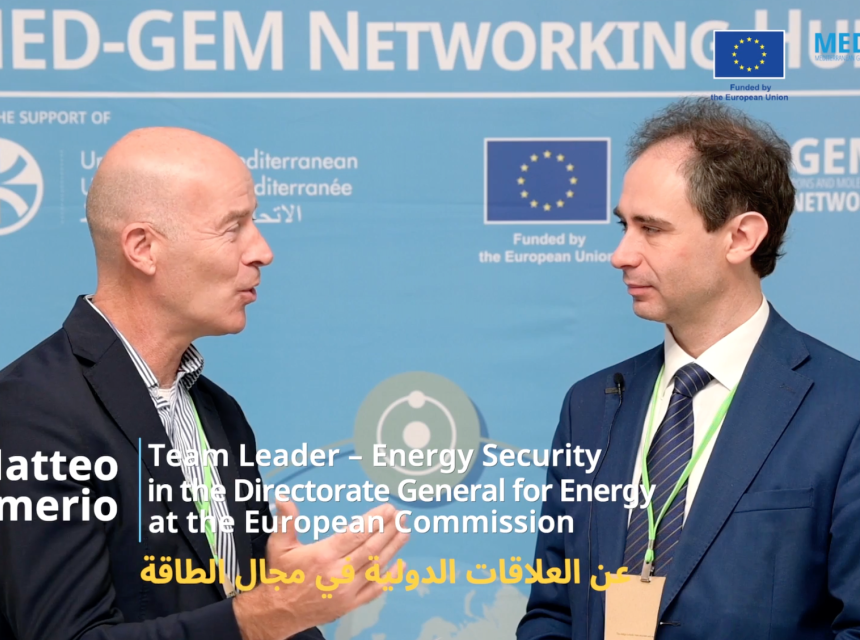On EU Strategies & Ambitions for Green Hydrogen, with Matteo Fumerio (DG ENER)
During the first Mediterranean Green Week in Istanbul, hosted by the Union for the Mediterranean and OECD-OCDE, Frank Wouters, director of MED-GEM, brought together influential figures in renewable energy from across the Mediterranean. Among the notable speakers was Matteo Fumerio, Team Leader – Energy Security, Directorate General for Energy (DG ENER), European Commission. In an engaging interview, M. Fumerio outlined the European Union’s bold strategies for advancing the energy transition, with a spotlight on renewable hydrogen.
Watch the full interview on Youtube (Eng with Ar Subtitles)
A Visionary Policy Framework
Matteo Fumerio provided exclusive insights into the European Commission’s comprehensive approach to international energy cooperation. Emphasizing the Mediterranean and MENA regions, he detailed the policies designed to foster collaboration and drive the global energy agenda. The EU’s commitment to sustainable energy is underscored by its focus on creating a robust regulatory environment that supports renewable energy initiatives.
Hydrogen: The Cornerstone of Energy Transition
As part of the EU’s broader energy strategy, hydrogen is being integrated into the energy mix, promising to revolutionize the sector. The discussion delved into the roadmap for promoting renewable hydrogen, portraying it as a cornerstone of the EU’s energy transition efforts. This vision includes the development of new working groups and frameworks that place hydrogen at the forefront of sustainable energy solutions.
Fostering Investment and Innovation
Central to the EU’s strategy is the establishment of regulatory frameworks and financial instruments aimed at fostering investment in renewable energy. He elaborated on the European Fund for Sustainable Development, which plays a critical role in de-risking investments. By leveraging EU budgets to support renewable energy projects, particularly in the Mediterranean, the fund ensures that financial barriers are minimized, encouraging private sector participation and innovation.
Building Strategic Partnerships
Strategic partnerships are key to the EU’s energy strategy. Matteo discussed the Memoranda of Understanding (MoUs) being forged with countries such as Morocco, Egypt, and Tunisia. These partnerships are not merely symbolic but are designed to catalyze real-world projects and cooperation in the renewable energy sector. Such collaborations are essential for advancing the EU’s energy goals and promoting sustainable development across the region.
Tangible Impacts and Future Prospects
His insights into ongoing projects and future initiatives highlighted the tangible impacts of the EU’s energy policies. From political engagement to financial backing, the EU is laying the groundwork for significant advancements in renewable energy. These efforts are set to drive economic growth, enhance energy security, and promote environmental sustainability both within the EU and in its neighboring regions.

